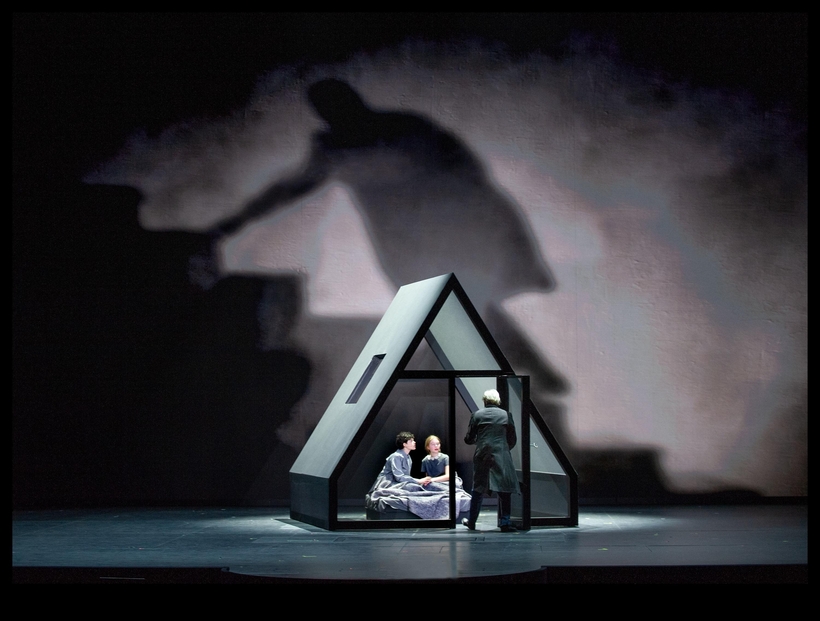Ingmar Bergman’s magical-realistic masterpiece Fanny and Alexander puts before us the flamboyant personalities of a provincial theater dynasty at the picturesque dawn of the 20th century. Whether as a very long feature film (183 minutes) or as a binge-worthy miniseries in five episodes (312 minutes), the multigenerational family saga most certainly checks the figurative box we call “operatic.” The same can’t be said of the new opera-house adaptation at the Théâtre de la Monnaie, Brussels, filmed live on December 13.
It’s the fashion today for star directors to start dictating while new material is still on the drawing board. Reportedly under the thumb of the heavyweight metteur en scène Ivo van Hove, the accomplished Royce Vavrek fashioned a libretto that tells more than it shows, trading onscreen hustle and bustle for talk-talk-talky exposition. As for the music, Mikael Karlsson’s instrumentals rely overmuch on minimalist boilerplate that underscores declamatory, headset-dependent vocals all but untouched by melody, lyricism, or exaltation.

Yet an hour and 25 minutes in, when the Pharisaical Bishop Edvard Vergérus starts tightening the thumbscrews on his young Hamlet of a stepson Alexander Ekdahl, everything snaps into terrifying focus. A loyal housekeeper remembers the bishop as a most loving husband and father to a wife and two daughters who all perished tragically more than a decade before—and who’s to say he was not? But Alexander’s Gothic fantasies, insubordinate sass, and baldfaced lies awaken the bishop’s dormant Beelzebub. As the orchestra bangs away like the engines of a battleship, Vergérus interrogates Alexander, extracts a confession, beats him with a stick for the acknowledged offenses, and finally forces him to grovel for pardon
At this dark heart of the opera, the boy soprano Jay Weiner and Thomas Hampson, elder statesman of baritones, take one’s breath away. For the ear, there’s the excitement of Weiner’s molten-silver phrases, flung out valiantly against Hampson’s thunderous accusations. With his broad shoulders and deep chest, Hampson towers like a colossus over Weiner’s slender form, yet the boy’s willpower rattles his tormentor to the core. And the camera loves them both, setting off their sheer glamour no less than their capacity for paradoxical nuance. Hampson’s Vergérus is never scarier than when he bestows an unwanted caress.
Alexander’s eventual revenge on the bishop comes about through his spiritual fusion with Ismael, an androgynous mystic kept locked in a secluded chamber at an old curiosity shop. Bergman cast Stina Ekblad, whose boyish presence carried a subtle charge of enigmatic possibility. In the opera, the countertenor Aryeh Nussbaum Cohen’s opulent yet unearthly timbre ennobles some of the composer’s most hypnotic pages. But his dowdy Edna Turnblad persona (think Hairspray) feels earthbound, matter-of-fact. And that’s hardly the only deflating wardrobe choice. As theater folk, Alexander’s relations the Ekdahls are enamored of image. Swapping their period finery for contemporary dress, Van Hove strips them of a favorite means of self-projection.
Mikael Karlsson’s Fanny and Alexander is available for streaming on medici.tv
Matthew Gurewitsch writes about opera and classical music for AIR MAIL. He lives in Hawaii

